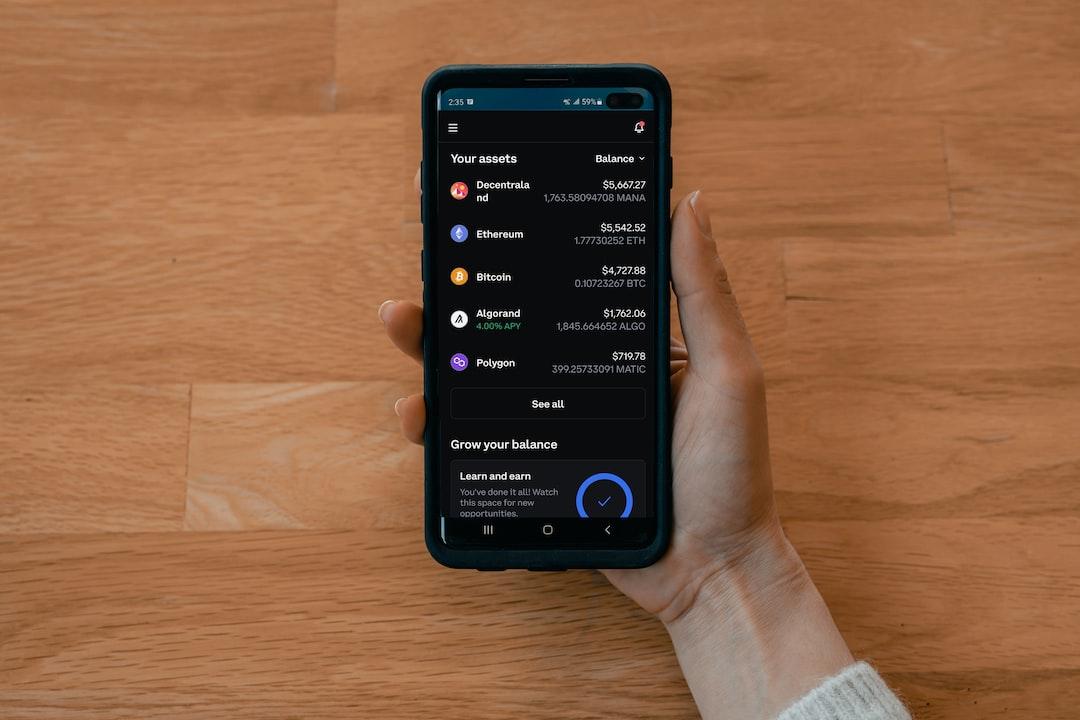US Cryptocurrency Users Required to Report Transaction Information Over $10,000 to IRS, Criticized for Unclear Regulations and Compliance Difficulties
Coin Center
Yesterday’s blog post by Coin Center pointed out that certain provisions of the US Infrastructure Act have now come into effect, including the requirement for individuals who receive over $10,000 worth of cryptocurrency in trades or businesses to report the names, addresses, social security numbers, and related transaction details of both parties to the Internal Revenue Service (IRS).
Table of Contents
Toggle
IRS: Details of cryptocurrency transactions exceeding $10,000 must be reported
Jerry Brito raises multiple concerns: I don’t know how to comply
Enforcing unclear rules, still in a hurry to collect taxes?
Cryptocurrency and blockchain think tank Coin Center revealed that the Infrastructure Investment and Jobs Act (IIJA), signed by President Biden in November 2021, includes several amendments to the tax code that require individuals who engage in cryptocurrency transactions or businesses exceeding $10,000 in value to report to the IRS.


H.R.3684 Infrastructure Investment and Jobs Act (IIJA)
It is reported that the details to be reported include the names, addresses, social security numbers, transaction amounts, dates, and nature of the senders and recipients; and if a person fails to submit a report within 15 days of receiving a transaction, they may face criminal charges.
Advertisement – Continue Reading Below




The law came into effect on January 1, 2024, and is automatically enforceable, with no further regulatory action required, and all US citizens are required to comply.
Jerry Brito, Executive Director of Coin Center, expressed concerns about this, pointing out that many specific provisions of the law have yet to be clearly defined, and there are many unresolved potential issues. Without more detailed guidance from the IRS, it will be difficult for cryptocurrency users to comply with reporting requirements.
Specifically, Jerry raised multiple questions about the applicability and circumstances of the new regulations:
When miners or network validators receive block rewards exceeding $10,000, who should the sender write the name or address of?
If a user uses the exchange function (Swap) of a decentralized exchange and receives $10,000, does that need to be reported?
Is it necessary to report when sending cryptocurrency from a centralized exchange to a wallet?
If a user receives a cryptocurrency through airdrops due to participation in protocol interactions but cannot determine if it is worth over $10,000, who should they ask?
Does the IRS have a standard to measure whether the value of a cryptocurrency exceeds $10,000?
In addition, he also mentioned that the law requires reports to be made in accordance with the “Form 8300” form prescribed by the Treasury Department, but this form is used to report “cash receipts”, and the relevant authorities have not yet explained how to report cryptocurrency income through this form.
At the same time, the form specifies that it can only be sent to the Financial Crimes Enforcement Network (FinCEN) and the IRS, but the former does not have the authority to collect reports on cryptocurrency transactions.
Jerry stated:
So far, the Treasury Department’s guidance is not clear, and I can’t find clear rules to follow.
In conclusion, Jerry also emphasized that he will continue to take a firm stance in litigation with the Treasury Department to clarify how the law should be complied with as soon as possible.
In fact, the law is still unclear in many definitions, such as Coin Center’s belief that it applies to any “entity or individual”.
However, Cointelegraph only mentions “cryptocurrency exchanges, brokers, custodians”, and other entities that are required to report transactions above a certain value, showing obvious discrepancies.
Earlier, when the law was signed into effect, many legislators also suggested that additional regulations be enacted to make the reporting requirements more comprehensive, and believed that it would be very difficult or almost impossible to fully achieve this through brokers collecting data.
In August of this year, the IRS also planned to introduce a new tax regime for the cryptocurrency field, which will be launched in 2026. From cryptocurrency wallets, payment processors, centralized exchanges (CEX) to decentralized exchanges (DEX) and other trading intermediaries, they may all be included in the scope of taxation.
It is understood that these companies will be required to track user gains and losses and assist in submitting tax information, posing a serious threat to the decentralized ecosystem.
Coin Center
Jerry Brito
Cryptocurrency taxation
Internal Revenue Service (IRS)
US Infrastructure Act


Further reading
Cryptocurrency advocacy organization Coin Center sues the US Treasury Department! Claims infrastructure bill is unconstitutional and persecutes privacy and freedom of association
ChainNews Translation | Why do cryptocurrency exchanges continue their operations in Russia? Is this reasonable and subject to criticism?
